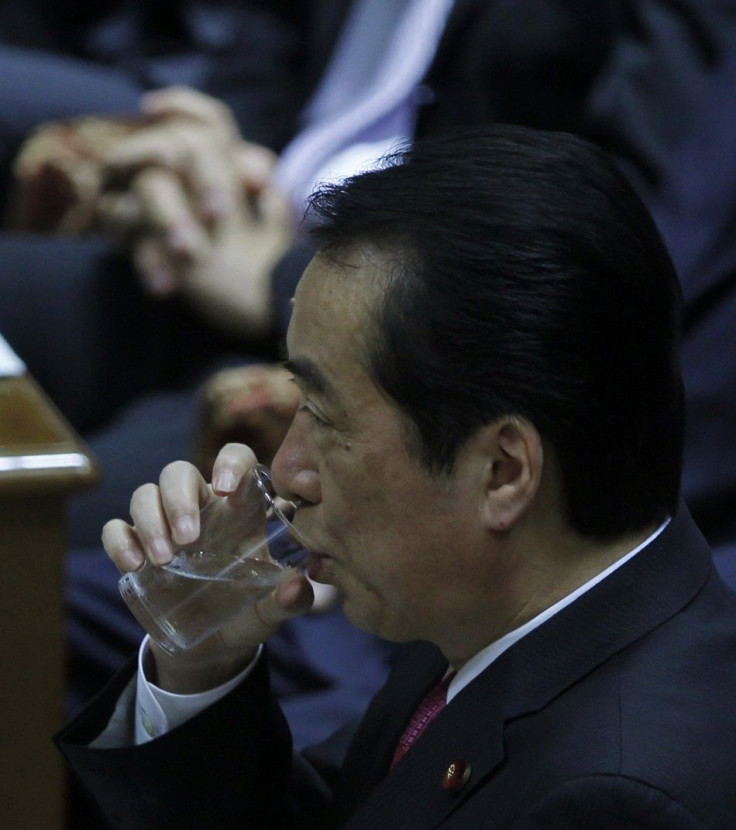Kan to resign after settling disaster issue

Prime Minister Naoto Kan, facing a no-confidence vote in the parliament said on Thursday that he would resign after solving nuclear crisis and other disaster related issues, reported Reuters quoting local media. Kan’s statement would raise the chances of him surviving a no-confidence vote later in the day and quell a party rebellion.
Earlier in the day, the head of a tiny ruling coalition partner, the People's New Party, had urged the detested leader to resign once he extended the current parliament session and dealt with Japan's most vital disaster related issue.
Kan gave no firm date of his step down.
Once I finish my work on handling disaster I would like the younger generation to take over my responsibilities, a solemn Kan told a gathering of ruling Democratic Party lawmakers.
Some rebels in the ruling party wanted Kan out sooner.
Yukio Hatoyama, Kan’s antecedent, told the MPs that he agreed with the prime minister's plan to step down once the outlook for an extra budget to fund rebuilding from the tsunami was clear.
Hatoyama had earlier said that he would vote in favor of the no-confidence motion in the parliament. His agreement looked likely to turn the tide in favor of the struggling prime minister. Other potential rebels also told that they were in favor of the party unity.
Kan, who became prime minister a year ago, is fighting to control a radiation crisis at Fukushima nuclear plant.
The largest opposition group, the Liberal Democratic Party, submitted the no-confidence motion in the parliament on Wednesday. The opposition needs the support of around 80 of the 305 lower house members from Kan's Democratic Party of Japan (DPJ) to pass the motion in the 480-seat chamber, the report stated.
A lower house session to vote on the motion was to open at 1 p.m. local time with the vote expected around 3 p.m. after speeches for and against the motion.
The financial market is on the edge due to the uncertain outlook.
The no confidence vote could swing either way and the market appears unsure of the outcome, said Yuji Kameoka, chief currency strategist at Daiwa Securities Capital Markets.
The yen could be sold temporarily if the vote is approved. Even if the vote is defeated, a large number of ruling party defectors could still reflect on the yen against the dollar as it the market could take a more cautious view on the Japanese economy he added.
© Copyright IBTimes 2024. All rights reserved.











